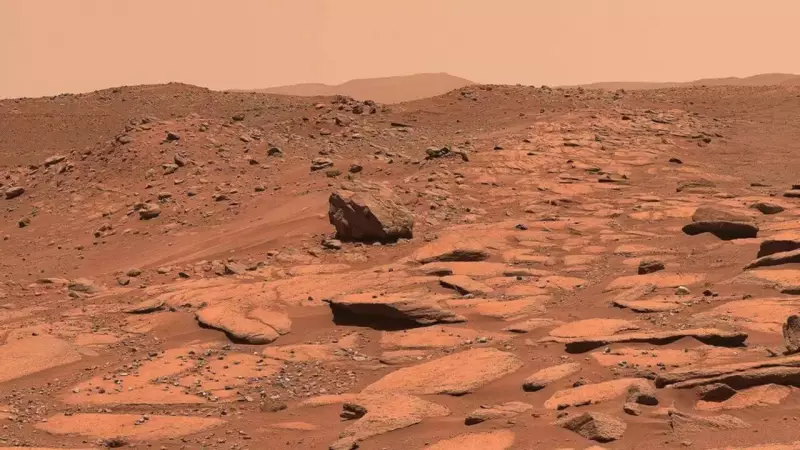
In a stunning revelation that could transform our understanding of the Red Planet, scientists have uncovered compelling evidence that Mars' massive ice deposits might be preserving alien life forms in a state of suspended animation for millions of years. This groundbreaking discovery opens unprecedented possibilities in the search for extraterrestrial existence.
The Frozen Time Capsules of Mars
Recent analysis of Martian geological data indicates that the planet's substantial ice formations act as natural deep-freeze units, potentially safeguarding microbial organisms from the harsh cosmic radiation and extreme temperature fluctuations that characterize the Martian surface. These icy reservoirs create stable environments where life could survive geological timescales.
Why This Discovery Changes Everything
The preservation potential of Martian ice represents a paradigm shift in astrobiology. Unlike Earth, where geological activity constantly reshapes the landscape, Mars' relatively stable crust means that ice deposits could remain undisturbed for eons, creating perfect conditions for preserving biological signatures.
Scientists now believe that if life ever emerged on Mars, these icy sanctuaries might contain perfectly preserved specimens, offering us a window into the planet's biological past. The implications are staggering - we might not need to find living organisms to prove extraterrestrial life existed; finding well-preserved remains could be equally revolutionary.
The Science Behind the Preservation
Martian ice operates differently from Earth's frozen water. The combination of low temperatures, minimal geological disturbance, and protection from solar radiation creates an environment where cellular structures and complex organic molecules could remain intact for unprecedented durations.
- Radiation Shielding: Thick ice layers block harmful cosmic and solar radiation
- Temperature Stability: Consistent sub-zero temperatures prevent molecular degradation
- Chemical Preservation: The frozen state halts decomposition processes
- Geological Stability: Limited tectonic activity means less disturbance over time
What This Means for Future Missions
This research fundamentally redirects the focus of upcoming Mars exploration missions. Space agencies worldwide are now prioritizing locations with substantial ice deposits as primary targets for sample collection and in-situ analysis. The race to drill into Martian ice has suddenly become the most exciting frontier in space exploration.
The discovery suggests that we might be closer than ever to answering humanity's most profound question: Are we alone in the universe? As mission planners develop new technologies to access these frozen time capsules, the possibility of finding conclusive evidence of extraterrestrial life grows increasingly tangible.
This research not only redefines our approach to Mars exploration but also expands our understanding of where and how life might persist throughout the cosmos. The frozen wastes of Mars may hold secrets that will fundamentally change our place in the universe.





